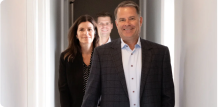I thought this piece, The Fed Loses Its Soul, was well done. My comments follow.
The Fed Loses Its Soul
By Doug Hornig
The Federal Reserve is losing its soul.
Considering all that it has put us through, you probably didn't realize that the Fed even had a soul. But it does (soon to be did). His name is Thomas Hoenig, and he's been president of the Kansas City Federal Reserve Bank for 20 years. Presently, he's also a voting member of the Fed's Open Market Committee, which sets monetary policy. (And is unrelated to yours truly - as far as I know.)
His vote will go away when Hoenig leaves the scene on October 1 of this year, after having reached the mandatory retirement age (65) for Fed bank presidents in September.
Hoenig's loss is a shame, because he's The Dissident. He has been the most consistent, the most vocal, and generally the only critic of Chairman Bernanke's easy money policy. Last year, he opposed keeping interest rates at historic lows - at all eight FOMC meetings - and has continued to do so at 2011's three gatherings.
He also opposed Bernanke's idea of stimulating the economy through the "quantitative easing" purchase of $600 billion worth of Treasuries, commonly referred to as QE2.
Hoenig is a firm believer in the words of William McChesney Martin, Jr., the longest serving Fed chairman, who once famously described the bank's role as ''to take away the punch bowl just when the party gets going." That is to say, if one wants to prevent bubbles in financial markets, one has to raise interest rates before they become too well-formed.
Bernanke, like Greenspan before him, believes instead that the path to prosperity must be piled deep with fiat currency, newly created from thin air, and thus we have gotten the dotcom bubble, the housing bubble, and today what appears to be a raging commodities bubble.
When that bubble pops, who knows where the next one will inflate - or how extensive the damage will be. But his fellow FOMC members can't say The Dissident didn't warn them. "I really want to take away the punch bowl before the room gets drunk, because this punch is - I think - a little bit spiked," Hoenig said back in March. Yeah, a little.
He doesn't mince words about current interest rate policy. In an interview last August, he said: "Zero is an emergency rate - it is not a rate that will sustain long-term growth ... It will create imbalances, and imbalances are what caused this last crisis, and that's what we want to avoid." And in a barb seemingly aimed at the rest of the FOMC, he added, "Everyone knows zero is unsustainable."
All the zero rate does, Hoenig contends, is prop up Wall Street at the expense of the rest of the economy.
"If I can go into the market," he says, "and borrow funds at the Fed Funds rate of almost zero, and then re-lend that to the federal government in ten-year securities for three percent, and am also told that that margin will be secure, what will I do with my money? I'm going to [take the] guaranteed return."
Having been around since the 1970s, Hoenig has seen plenty of bubbles that resulted from the Fed's reaction to a sputtering economy. Those "are consequences that, in the short-run, you don't think about because what you want to do is get unemployment down, and you want to get it down as quickly as possible. So you leave rates really low."
While he doesn't fault the decision to bring interest rates down during the crisis, the "consequences longer term are you create new imbalances that then have to be corrected." But he has dissented from policy for more than a year because he believes it's time to move on. "I felt that we should not allow [the Fed's] language to assure Wall Street - the financial markets - of a guaranteed return, that they needed to begin to think about risk and the risk return that is part of an economic system that works effectively."
Hoenig knows full well that his stance as the lone inflation hawk is not going to be popular, either inside or outside of the Beltway. "The markets," he acknowledges, "always want more stimulus, always want more ease, always want low interest rates ... We all have the view that lower interest rates mean things will get better."
But they won't without a policy shift. Painful though it may be, he firmly maintains that tighten we must.
"I don't want to see unemployment this high," he says. "But I also don't want to see it this high three or four years from now following another crisis because we were so impatient. That's a very hard trade-off and it's very difficult to explain, but it's what we need to do."
These are the kinds of words the public rarely sees, because when the media report on the FOMC, they tend to focus entirely on what Big Ben does or doesn't say, and on what Fed policy is going to be until the next meeting. The Dissident's voice is usually ignored.
Now it will be silenced. We don't yet know who will replace Thomas Hoenig, but there's probably a better than even chance it'll be someone who toes the party line rather than persistently challenges it.
That's the Fed's loss. And our loss, too.
************
Hoenig's comments, particularly those in bold, remind me of my first job at PNC Bank in Pittsburgh in 1990-91, where I saw this policy in action. During the recession that accompanied Desert Storm, the bank was making very few loans, even turning down requests from many very long term customers. I can clearly recall the head of the credit committee telling a PNC loan officer that his request for a loan on behalf of his customer would compete with the bank placing its funds in risk free treasury securities that would produce a net interest margin of 4%. While the bank fed funds rate was 4% at the time, treasuries were 8%, so the bank could borrow at 4% and invest at 8%, making a 4% risk free spread.
It isn't a stretch to believe that a 4% risk free spread in treasuries would create fewer jobs in the economy than a 5% spread loan to a company with a new capital project. In this sense, while loose Fed policy may give banks additional time to heal their balance sheets from toxic loans, it might also counterintuitively keep the unemployment rate higher than it otherwise might, suggesting that easy monetary policy may be somewhat ineffective at tackling the unemployment side of its dual mandate.
At the same time, while this argument might have made sense in 1990, I'm not as sure that it is consistent with today's realities. Many non financial companies are generating significant cash flow, with some companies sitting on huge surplus balances, like Apple with $69 billion. Many companies are in a mode of shrinking to grow, a phrase I've heard many times in the past six months to a year. In other words, many companies aren't buying new assets, but are selling them off to buy back their stock or increase their dividends. Sure, they are spending some of their cash flows on OPEX and CAPEX, but given the above average free cash flows being generated, they must not see many positive return on investment opportunities.
Even the companies that are able to borrow - and this in the corporate bond market not from bank loans - are only doing so to take advantage of low rates, using the cash proceeds to buy back their own stock in many cases. This has become the benchmark by which any new acquisition or endeavor is judged, much as was the case for the bank in 1990.
Is anything better than the status quo? If not, forgo.
While buying back your stock helps the stock market, I'm not as sure that it creates as many new jobs as new capital projects would or as the Fed mi ght desire, an improving unemployment rate. Today's dynamic - one in which even cash rich companies aren't taking big risks even though they are capable of doing so - suggests that the economic recovery, while intact, will likely give way to an expansion that is much slower than normal.
Having witnessed asset bubbles in technology, commodities, housing and private equity in just ten short years, perhaps slower than normal is just what we need.
Hoenig's right, perhaps we could use a little more patience.



